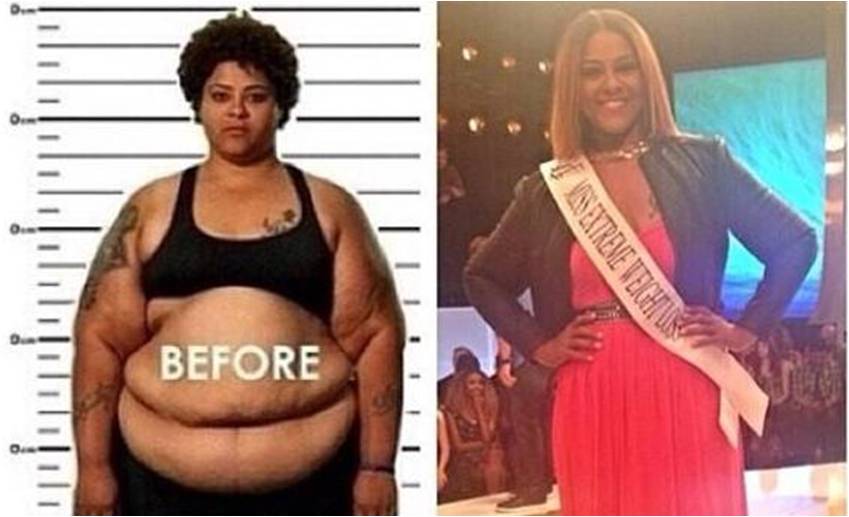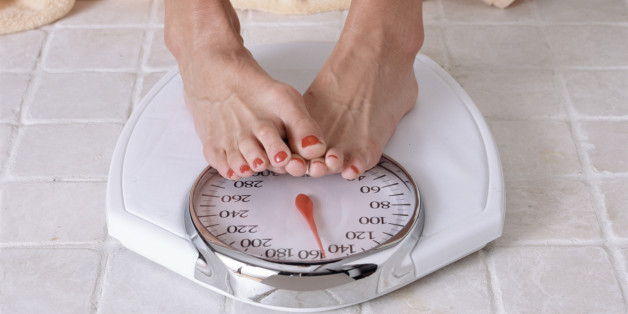Let Your Losses Be Your Gain
There are many factors to consider when your goal is fat loss. I'm going to outline some steps you may want to take in reaching that goal. To lose weight for good means that you have to make some changes in your dietary and exercise habits. We all know that old habits die hard, and change can sometimes be difficult. Try these tips one at a time. It has been said that for something to become a habit it takes about 2-3 weeks. Attempting to rearrange your entire lifestyle all at once is too overwhelming and will only set you up for disappointment.
- Eat more often. Try 5-6 smaller meals instead of 3 larger ones. This avoids the wild swings in insulin that many people experience when they eat 3 large meals a day. Insulin is very important in the body. Very high levels are usually not desirable since insulin can shut down the body's fat burning mechanism. (Those people who have a history of diabetes may want to check with their doctors before changing your dietary habits).
- Keep a diary of what you eat. Many people underestimate how many calories they actually eat. Buy a food scale if that will help you to weigh out your portion. Know the amount of calories, fat grams, proteins, and carbohydrates, in the foods you eat.
- Try not to lose more than a pound or two a week. If you're losing faster than this you are losing muscle and not fat. The slower you lose weight the more permanent the results.
- A combination of aerobics and resistance training is the best exercise you can get. The more muscle you have, the more calories your body burns at rest, since muscle is a metabolically active tissue and require calories to maintain. Although you don't burn a lot of calories during a resistance training session, you burn a lot afterwards. (Forgive me for sounding like a broken record on this one, but it is crucial in achieving your fitness goals)
- Don't pay too much attention to the scale. The scale can't tell the difference between muscle and fat. Your bodyweight could stay the same but you could be gaining muscle and losing fat at the same time.
- The type of foods you eat matters also. Try eating food high in fiber. Include more fruits and vegetables, less fats and sugars. Always look for the low fat alternative, and learn to substitute.
- Proper caloric intake will vary from person to person. First of all, try to find out how many calories you're eating now. If your bodyweight has stayed relatively constant, then this amount of calories is approximately how many you need to maintain your present weight. Your next step would be to create a calorie deficit. This is done by eating fewer calories, and increasing the amount of exercise you are getting.
- If your drop your calorie intake, don't do it by much. Very low calorie intakes can result in loss of muscle tissue and will also slow down your metabolism. You may also consider cycling your caloric intake. That means that you take in below the amount you need one day and then the amount needed to maintain the weight you are at now. This way, you calories will average out below that maintenance level for the week.
Now it's time to take the next step. Put your good health and well being at the top of this list and you're well on your way to a healthy and energetic lifestyle.
-
57 Ways to Lose Weight Forever, According to Science
V
-
Are You Addicted To Food And Eating?
Are you addicted to food? While its quite normal to talk about alco
-
Weight Loss Diet Pills And Phentermine
Diet pills have been getting their fair share of publicity these days,
-
The Swimsuits are Coming!
A national epidemic is hitting department stores in which scores of
-
Cannot Lose Those Extra Pounds Of Weight??
This makes EFAs an important part of your diet. Other sources of t
-
The Secret Meaning Of Compulsive Eating Behaviors
Food is not simply fuel to keep you going. Nor is it the enemy, out t
- DON'T MISS
- Diet Plans and Tracking – Gain Success Quickly
- Thanksgiving - Understanding The Holiday
- Eat to Lose Weight + Live Longer
- Weight Loss Tips for Stay at Home Mothers
- Weight Loss Tips: 5 Tests That Can Save Your Life
- Boot Camp: The Best Fitness Program For Kids
- Reduce Flab Exercises
- 8 Steps to Living Younger
- Easy Weight Loss - Two Tips For Great Weight Loss Success
- History And Safety Of The Hoodia Gordonii Appetite Suppressant




